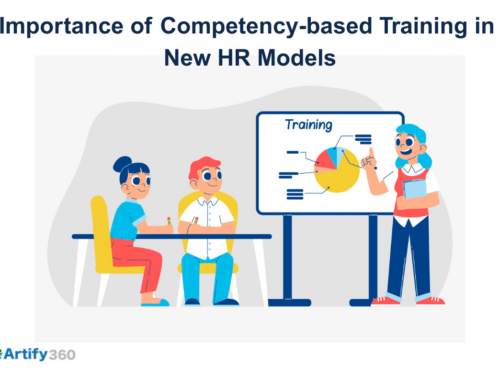For businesses in Qatar, performance evaluations play a crucial role in assessing employee performance, identifying areas for improvement, and making decisions regarding promotions. However, the subjectivity and biases in the evaluation process can undermine fairness and consistency. That’s where appraisal calibration comes in.
This blog post will explore the importance of appraisal calibration in achieving fairness and consistency in performance evaluations. We will also discuss the role of Qatar’s top HR software as a tool to facilitate appraisal calibration, ensuring a more objective and accurate assessment of employee performance.
Challenges of performance evaluations
Subjective performance evaluations can present numerous challenges. Evaluators may have different interpretations of evaluation criteria, leading to inconsistent ratings. Additionally, biases can unintentionally influence evaluations, affecting fairness and objectivity. These challenges can undermine the credibility of the evaluation process and create dissatisfaction among employees.
Understanding appraisal calibration
Appraisal calibration aligns evaluators’ assessments to ensure fairness and consistency in performance evaluations. It involves collaborative discussions and adjustments to ratings to mitigate biases and accurately reflect employee performance. Appraisal calibration helps establish a level playing field, enabling fair employee comparisons and ensuring consistent evaluation standards.
Role of HR software in appraisal calibration
HR software in Qatar plays a vital role in facilitating appraisal calibration. It offers features and functionalities that streamline and enhance the calibration process. For example, the software automates data collection and analysis, providing objective insights and reducing the impact of personal biases. It also provides a centralized platform for collaboration, enabling evaluators to share their perspectives and align their assessments more effectively.
Establishing evaluation criteria and standards:
Clear evaluation criteria and standards are essential for effective appraisal calibration. The HR system helps define and communicate these criteria to evaluators, ensuring a consistent understanding of expectations. It provides a centralized repository where evaluation criteria can be documented and easily accessible to all evaluators. This transparency fosters a shared understanding and promotes consistent evaluations.
Training evaluators for consistent assessments:
Calibrating evaluators for consistent assessments requires training and guidance. Qatar HR software can play a crucial role in providing training resources and guidelines. It offers training modules that educate evaluators on evaluation criteria, rating scales, and potential biases. HR tools help create a more consistent and objective evaluation process by equipping evaluators with the necessary knowledge and skills.
Calibration sessions and collaborative discussions:
Calibration sessions are collaborative discussions among evaluators to align their assessments and address disparities. HR solutions facilitate these sessions by providing a platform for evaluators to share their insights, compare ratings, and engage in meaningful discussions. This collaborative approach promotes a better understanding of performance expectations and enhances the accuracy and fairness of evaluations.
Data analysis and performance insights:
Data analysis is a vital component of appraisal calibration. HR software in Qatar collects and analyzes performance data, providing comprehensive reports and performance insights. By examining trends and patterns, the software helps identify potential biases and inconsistencies in evaluations. These insights empower organizations to make data-driven decisions and continuously improve the calibration process.
Mitigating bias and unconscious influences:
Mitigating bias and unconscious influences is crucial in achieving fair and accurate evaluations. The HR system aids in identifying and addressing potential biases by analyzing evaluation data. It highlights areas where biases may exist, allowing organizations to take corrective measures and ensure a more objective and equitable evaluation process.
Ensuring transparency and feedback:
Transparency and feedback are essential in the appraisal calibration process. HR solutions enable organizations to provide transparent employee feedback, explaining how evaluations are conducted and the reasoning behind ratings. This transparency promotes employee understanding and confidence in the evaluation process. Additionally, Qatar’s top HR software facilitates feedback loops, allowing evaluators to receive employee input and fostering open communication and trust.
Continuous improvement and iterative calibration:
Appraisal calibration is an iterative process that requires continuous improvement. HR tools support this iterative approach by providing data-driven insights and performance analytics. These insights help organizations identify areas for improvement, refine evaluation criteria, and enhance calibration processes. Organizations can achieve greater fairness, consistency, and accuracy in performance evaluations by continuously evaluating and enhancing the calibration process.
Data security and privacy:
Protecting employee data is of utmost importance in the appraisal calibration process. Qatar HR software implements robust security measures to safeguard employee information, ensuring confidentiality and compliance with data privacy regulations. Encryption, access controls, and secure storage are some of the measures employed by the HR system to protect sensitive data.
Final thoughts
Appraisal calibration is vital in achieving fairness and consistency in performance evaluations. With the help of Artify360 HR software, organizations can streamline the calibration process, mitigate biases, and enhance objectivity. Organizations can ensure a more accurate and equitable assessment of employee performance by establishing clear evaluation criteria, facilitating collaborative discussions, and leveraging data-driven insights.
Through continuous improvement and adherence to best practices, appraisal calibration can contribute to a fairness, transparency, and employee growth culture. By embracing the power of Artify360 HR software in appraisal calibration, organizations can maximize the potential of their performance evaluation processes.






